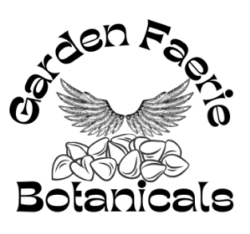Heirloom Seeds Explained: Preserving Genetic Diversity and Embracing the Stories Behind Our Food

In a world increasingly focused on achieving food security, the significance of heirloom seeds cannot be overstated. These seeds, cherished and passed down through generations, are more than just the progenitors of plants; they are the guardians of our agricultural history and cultural heritage.
Definition and History
Heirloom seeds have a story to tell. These seeds have been nurtured, selected, and handed down from generation to generation, often within families or communities. Unlike hybrid or genetically modified seeds, heirloom varieties are open-pollinated, meaning they rely on natural pollination methods like wind or insects. This method of seed preservation and propagation has been a foundation of traditional agriculture, fostering a rich diversity of plant species. Each heirloom variety is a living legacy, a link to the past, and a hope for the future.
The Genetic Diversity
Genetic diversity is the cornerstone of a healthy and resilient agricultural system. Heirloom seeds are essential in this regard, offering a broader genetic pool that enables plants to adapt to changing environmental conditions and challenges. This diversity is not just beneficial for the plants; it also benefits the ecosystem and, ultimately, the people who depend on these plants for food. Each heirloom variety carries unique traits and characteristics – be it drought resistance, disease tolerance, or superior flavor – making them invaluable in a world grappling with the impacts of climate change and striving for food security.
Benefits of Growing
Growing heirloom seeds comes with a multitude of advantages. Firstly, the flavor profile of heirloom produce is often unparalleled. Many gardeners and chefs swear by the taste of heirloom vegetables, which is typically richer and more complex than that of their hybrid or GMO counterparts. Additionally, heirloom seeds can contribute to nutritional diversity. But beyond these tangible benefits, there’s a more profound advantage: a connection to our agricultural heritage. Gardeners and farmers who choose to grow heirloom varieties are participating in an age-old tradition of seed saving and sharing, a practice that fosters community resilience and contributes significantly to global food security.
Heirloom vs. Hybrid/GMO
The debate between heirloom seeds and their hybrid or GMO counterparts is a complex one. Hybrid and GMO seeds have been engineered to exhibit specific traits, such as higher yields, uniform appearance, and resistance to certain pests or diseases. While these characteristics can be beneficial in the short term, especially in large-scale agriculture, they always come at a high cost. GMOs also come with serious health consequences and some countries have begun to ban them These seeds typically require more inputs like fertilizers and highly toxic pesticides, and they can contribute to an extinction in biodiversity.
Heirloom seeds, on the other hand, are celebrated for their natural, time-tested qualities. They have adapted over years, or even centuries, to local conditions and thus often require fewer resources to thrive. This makes them a more food-secure and environmentally friendly choice, especially in the context of small-scale and local farming practices. A garden can save these seeds year after year, negating the need to continually buy them and this provides self-sufficiency.
Heirloom Varieties That Traveled Through The Centuries
Delving into the world of heirlooms, it’s fascinating to discover some of the oldest varieties that are still available today. These seeds, particularly the landrace varieties date back centuries and offer a unique window into the past.
One of the most intriguing examples is the ‘Crapaudine’ beet, believed to be the oldest beet still in existence, with a history stretching back 1,000 years. This variety is notable for its carrot-shaped roots and rough skin resembling tree bark, offering some of the sweetest flesh found in beets. Its enduring presence highlights the resilience and adaptability of certain plant varieties over millennia.
Another significant and ancient variety is the ‘Connecticut Field Pumpkin,’ introduced prior to 1700. This variety is one of the oldest heirloom pumpkin varieties and has a rich history that dates back to the early days of American agriculture. It was widely grown by Native Americans and was later adopted by early New England settlers. It is often associated with the traditional practices of growing pumpkins among field corn, a method likely observed and adopted by these settlers.
Additionally, the ‘Speckled Lettuce,’ a variety brought from the Netherlands to Ontario, Canada by Mennonite immigrant Urias Martin in 1799, showcases the movement of seeds across continents and their role in the cultural exchange. This lettuce variety, with its beautiful apple-green leaves speckled and splashed with deep red, is not just a testament to agricultural heritage but also to the human stories intertwined with these plants.
These century-old heirloom seeds are living links to our past. They carry with them centuries of agricultural adaptation, and cultural history, emphasizing the importance of preserving biodiversity and traditional agricultural practices. Their continued cultivation is a tribute to the enduring legacy of our ancestors’ relationship with the land and the crops they nurtured.
Cultural Importance
Finally, the value of heirloom seeds extends beyond their agricultural and nutritional benefits. They are a living link to our cultural history. Every seed, every plant has a story to tell – about the people who nurtured it, the traditions it represents, and the lands it comes from. By growing and preserving these seeds, we keep these stories alive. We maintain a connection not only to our past but also to our future, ensuring that these diverse, flavorful, and resilient varieties continue to enrich our lives and plates.


